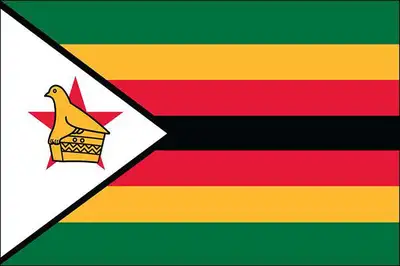
International security expert Dr Marc Lanteigne says hopes remain for a better future in Zimbabwe, despite turmoil following recent elections.
By Dr Marc Lanteigne
Last week Zimbabwe held its first presidential election in nearly 30 years that did not include the country’s founding leader, Robert Mugabe, amid regional and global hopes that the southern African state is finally entering a stable period of political and economic reforms.
However, the results of the vote, and events following it, have produced more uncertainty and potential instability at a delicate time in the country’s transition away from its troubled Mugabe legacy.
Zimbabwe embraced the possibility of finally emerging from a vicious cycle of corruption, economic trauma and international ostracism after President Mugabe was leveraged out of office in November of last year, which he had held since Zimbabwe (formally Rhodesia) gained its independence in 1980.
Mr Mugabe, as leader and head of the Zimbabwe African National Union-Patriotic Front (Zanu-PF), oversaw frequent suppression of political opponents as well as an economic downturn made worse by corruption, hyperinflation, and a collapse of the country’s agricultural sector over the past two decades. His ouster was the result of a coup d’état by the Zimbabwean National Army (ZNA), but the erstwhile president has later negotiated freedom from prosecution for crimes committed while in office in exchange for stepping down.
The departure of Mr Mugabe was welcomed by many foreign leaders, including New Zealand Prime Minister Jacinda Ardern, who called for the restoration of democracy in Zimbabwe and noted that “it’s pleasing to see change afoot” in the country. Mr Mugabe’s replacement as president is a Zanu-PFparty elder and former vice-president, Emmerson Mnangagwa. On entering office, he promised sweeping political reforms as well as efforts designed to attract foreign businesses back to the country, along with the hard capital the country desperately needs.
While the election provided a fresh mandate for his reform programmes, it also offered an opportunity for long-suppressed opposition groups to finally play a greater role in the country’s government. The days following the vote, however, saw anti-government protesters being fired on by ZNA forces, resulting in six fatalities and leading to concerns the election results would be subject to manipulation by the Zanu-PF. Mr Mnangagwa later condemned the deaths and promised that those responsible would be brought to justice.

Zimbabwe's flag - will the nation prosper under its new leader, Emmerson Mnangagwa?
Ballot questions
International observers, including from the Commonwealth, expressed concerns about aspects of the balloting, including reports of voter intimidation and the four-day waiting period following the election for the final results to be publically announced.
Ultimately, Zanu-PFunder Mr Mnangagwa won 50.8 per cent of the vote, while his main opponent, Mr Nelson Chamisa of the Movement for Democratic Change (MDC), received 44.3 per cent. The results also showed a split between voters in the country’s major cities, including Harare and Bulawayo, which heavily supported Mr Chamisa, and more rural areas which favoured the Zanu-PF.
Shortly after the results were announced, Mr Chamisa accused the government of vote-rigging, and referred to the situation as a de facto ‘coup’, while promising that the outcome would not be permitted to stand. While there is now the strong possibility of a legal challenge to the results by the MDC, to date there has not been a resumption of street protests.
Hope for change despite disappointments
The results were a great disappointment to those who were hoping for a return to greater multiparty democracy in Zimbabwe. However, Mr Mnangagwa has repeatedly promised that Zimbabwe would be ‘open for business’ under his administration, and that he would continue to combat corruption and restore the country’s broken economy.
In Zimbabwe, financial revival will indisputably be a priority for the new government, given the country’s looming debt crisis, unemployment, and a lack of foreign exchange reserves.
However, a representative of the World Bank suggested that with an effective reform package, Zimbabwe could become a middle-income country in a decade, given the country’s great economic potential in the form of human capital and a robust array of resources. Although international condemnation of the Mugabe regime has resulted in a dearth of trading partners, China has boosted economic ties with the African state in recent years with Mr Mnangagwa expressing interest in joining Beijing’s ‘Belt and Road’ trade initiative earlier this year.
It is likely that Zimbabwe will continue to seek more trade partners in the coming months. The country was expelled from the Commonwealth in 2003, and it is hoping to have its membership restored. Much will depend on whether the outcome of this vote will be challenged, and on the ultimate trajectory of political reforms.
The question now is whether, in the wake of these tumultuous elections, the country may be facing a political false dawn rather than a new day.
Dr Marc Lanteigne is a senior lecturer in the Centre for Defence and Security Studies at Massey's Auckland campus.